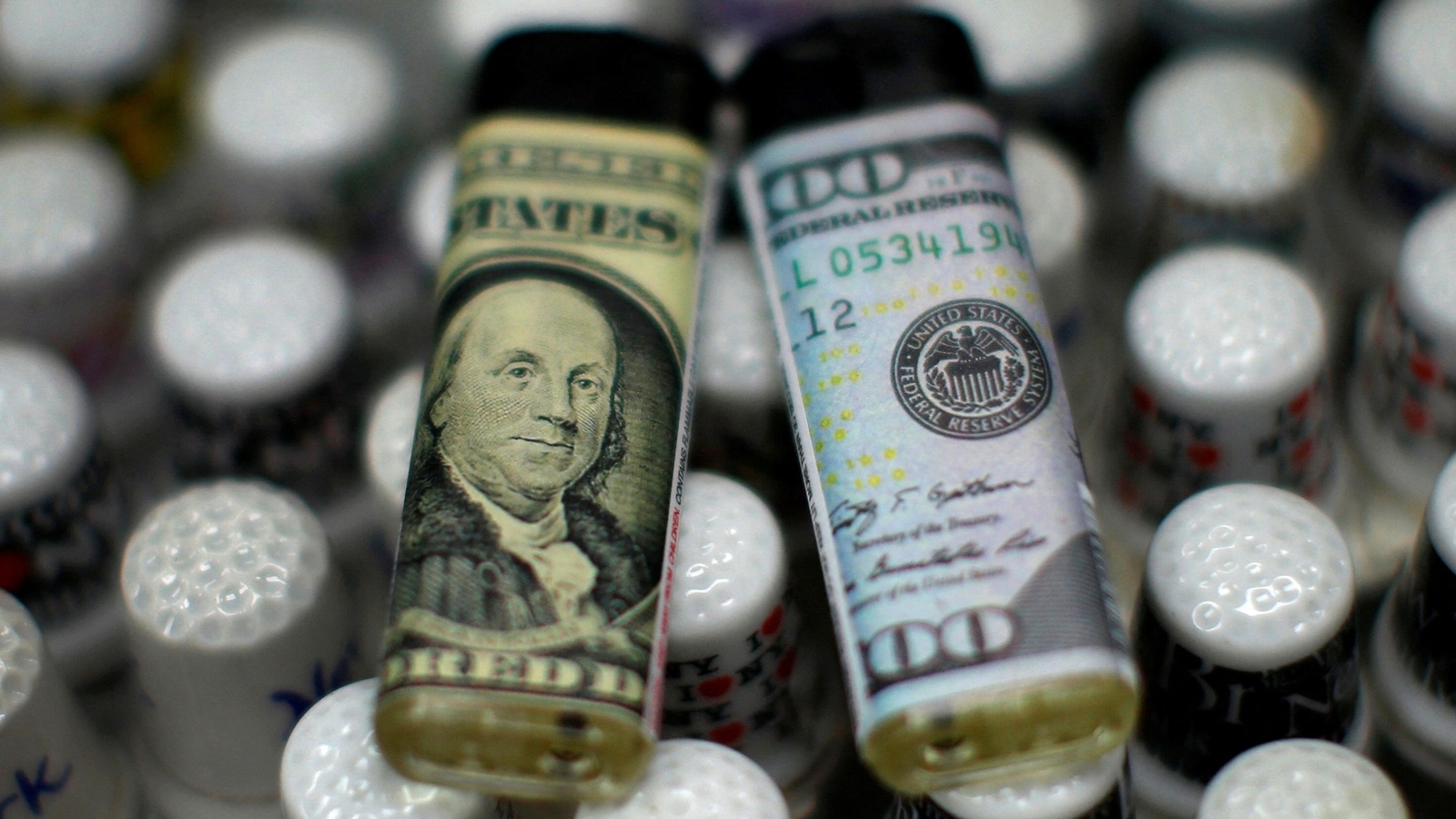Investing in cryptocurrency is a form of ‘schmuck' insurance and other talk about money
A Q&A with personal-finance adviser and author Paco de Leon on learning the art of salary negotiation and why investing in cryptocurrency is a form of “schmuck” insurance.

This is one of a series of interviews by Bloomberg Opinion columnists on how to solve the world's most pressing policy challenges. It has been edited for length and clarity.
Alexis Leondis: You're an illustrator, musician and founder of a financial firm, The Hell Yeah Group, that helps creative people with their personal and business finances. Earlier in your career, you worked at a major bank as a collections agent, and also at a more traditional financial planning firm. In your new book “Finance for the People: Getting a Grip on Your Finances,” you take those experiences being “inside” to help those who have felt ignored or underserved when it comes to money management. What's the most important message for those readers?
Paco de Leon, founder, The Hell Yeah Group and author, “Finance for the People”: This world is for them. And I am a testament to that. I've been on the inside and I've still felt like I was on the outside. The reason why was because I didn't feel like there was somebody there to usher me in and welcome me in. And I'm going to be that person for everyone who wants to go along for the ride.
If I had to boil it down to one theme, it's not to fear your finances and not to be afraid to speak up and talk about it. There's this cultural [idea] that it's inappropriate to talk about money. It's frowned upon in some workplaces to talk about your salary with your employees, which to me is so gnarly — because you're literally at work to earn the money! And so, you're walking around not saying the thing that you're there for. This book and all the work I do is really about opening up a larger conversation about money. Because I believe once we're more comfortable talking about money, people are going to start facing their finances.
AL: How do you think your approach to personal finance is different from other books that focus on the topic?
PDL: The book has something like 50 to 75 original illustrations that I drew. The point of those illustrations is to reach people who might look at a book about money and see blocks of text and feel intimidated. Sometimes looking at a picture of a cookie or a stack of pancakes helps you understand something that felt foreign. Things like worth and value are abstract; illustrations make them concrete.
Also, it's a pretty judgment-free zone for people looking at their spending plan, or thinking about their past financial “mistakes.” Judgment has been such a pillar in the personal finance industry — it's the attitude of like, “Just stop buying those lattes.”
AL: What are your views on investing in cryptocurrency? Do you see it as promising or dangerous?
PDL: I view it as an alternative asset. I do have some crypto. And my rationale, I suppose, for investing in cryptocurrency is I want to have “schmuck insurance” — meaning, if it goes up, I don't want to look like the finance person who just didn't buy any. I have no idea what the future of technology is going to be. I have no idea why we would want to be in the metaverse for that long. But [with crypto], I'm going to participate and I'm going to manage my risk.
I will say the fascinating and exciting thing about cryptocurrency is it shines a light on the fact that money is an illusion. It is a shared societal belief system that this thing is valuable. And that's the same exact reason why any coin, any token is valuable: because a community of people believe in it.
AL: How should we view the personal finance “rules of thumb” that have been quoted for years: don't spend more than 30% of your income on housing; withdraw 4% in retirement (now 3%), etc. Are they still valid today or do we need to just forget them entirely?
PDL: They're great starting points. There are certain pieces of wisdom in the personal financial world that will always be true. For example, one ought to always spend less than they earn. It does get challenging, though, particularly when you're graduating college and entering the workforce. That's when personal finance gets personal. I think it's great to understand the mentality behind the rules and the reasoning behind them. Then we can manipulate those rules and make our own choices.
AL: So much of our financial world seems to be contingent on working for an employer, from getting a mortgage to health insurance. Access isn't as easy when you're self-employed. As more and more people start working for themselves, what do they need to know?
PDL: When you're getting into the less traditional path, you have to really lock in and understand all the mechanics behind your personal finances. If you focus on getting your personal finances in line, that can only help with how you're running your freelance practice, how you set your price, how you're managing your invoicing, how you're negotiating clients. All of that is overlapped and interconnected.
AL: You talk a lot in the book about how we're all weird about money, and the role emotions play in making financial decisions. Why is it so important to think about and work through those underlying associations and feelings when it comes to financial matters?
PDL: What I've observed over the years is the information is out there — everybody knows that they shouldn't spend more than they earn; everybody knows that they should be saving. But people don't act in their best interest. I saw this with people who were making $1 million a year and with folks who were making $30,000 a year.
There's so much tied with money to what has happened to us growing up. I mean all day long, we tell ourselves a story in our mind and we constantly have this tape playing in our mind. And it sounds weird and it sounds hard to believe, but those stories shape the way that we see the world. It's important for us to understand how those narratives have shaped our current reality today. If you think about it, our past is like a hand reaching through space and time, and it's impacting our actions today. And it's important to recognize that because human beings are emotional creatures, we make decisions based on emotions. And we try to rationalize those decisions later.
We have to understand what's triggering us and do everything in our power to manage those emotions so that we're not just shooting from the hip and being even weirder about money.
AL: You highlight the income disparity you faced in your career, where you had this revelation that you earned 13 cents for every dollar your boss did — and how earnings are an underrated component of the financial equation. What's your advice to those who feel, or even know, they're underpaid?
PDL: Workers today have so much leverage, more leverage than I've seen in my adult working life thus far. And you should use it to your advantage. Understand that good employees are hard to come by right now and that if you're able to add value to somebody's organization, then you have the power and the leverage.
One fatal flaw in my working life thus far was that I did not learn about negotiation. I watched it from the sidelines. I made plenty of mistakes negotiating against myself right from the gate. Take your time exploring how to negotiate. There are so many resources online that you can find.
AL: Some young people may have concerns that by engaging in the current financial system and playing by its rules, they're effectively perpetuating its inequities. What would you tell them?
PDL: If you want to be a conscientious objector to the modern economy, then go for it. There are plenty of options where you can participate in communal living or even try to survive without any money at all.
Making a profit in the stock market is based on exploitation. It's extractive. You only make money because the workers create the value. Then the value is extracted and it's given to the shareholder and that's how wealth gets built. So the way that you reconcile that is you sit there and you think about it. And you sit with those negative feelings and you have to come up with a way to be in the world.
So then think about how can you give back? What can you do to offset what you're doing? And the thing I talk about in the book is if you want to create social change, it's possible to create organizations and communities where the benefit is for the community and not the shareholder.
The current system we're in right now rewards wealth. It also requires money, which is also a proxy for power to create this change. So my advice to you is get the money and make the change. You can amplify your values and you can create what you want to see in the world.
AL: What's the one policy change you think would do the most to promote greater financial security for freelancers and the self-employed?
PDL: I would love to see a universal basic income. It would allow people to explore. It would allow people to discover what their gift is. When I lost my very last job before I started working for myself, I went on unemployment for 99 weeks or something like that. And that was my UBI to figure this out, to start my business, to sit and understand what the hell I'm here for: which is to talk to people about my philosophies and to teach them about money.
Alexis Leondis is a Bloomberg Opinion columnist covering personal finance. Previously, she oversaw tax coverage for Bloomberg News.
Catch all the Latest Tech News, Mobile News, Laptop News, Gaming news, Wearables News , How To News, also keep up with us on Whatsapp channel,Twitter, Facebook, Google News, and Instagram. For our latest videos, subscribe to our YouTube channel.






























